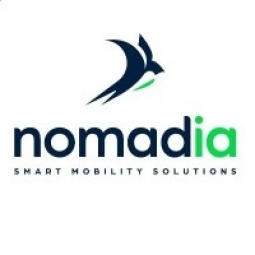Applicable Industries
- Equipment & Machinery
- Retail
Applicable Functions
- Sales & Marketing
Use Cases
- Personnel Tracking & Monitoring
- Vehicle Telematics
About The Customer
SODIS is a subsidiary of the McCormick Group, a world leader in flavors. Established in 1984, SODIS is a major field marketing player specialized in managing and optimizing shelf space for the Ducros and Vahiné brands. The company’s aim is to promote these brands’ new products and to make it easy for shoppers to find the spices, peppers and other baking ingredient products they need in more than 4,500 stores, supermarkets and hypermarkets throughout France. The company has around 280 employees, with 150 field sales staff covering the whole of France, making around 120,000 in-store visits per year.
The Challenge
SODIS, a subsidiary of the McCormick Group and a major field marketing player, was facing challenges in managing and optimizing the routes of its 150 field sales promoters who cover the whole of France. The promoters were organized into 20 regional teams and made more than 120,000 store visits a year, covering a distance of around 5 million kilometers. The company was seeking to optimize these routes to reduce mileage and time spent on the road, thereby increasing efficiency, productivity, and working comfort. Additionally, SODIS needed accurate and relevant data to respond efficiently to the objectives of the Ducros and Vahiné brands and offer their customers the best quality service. The call schedules were initially generated from the sales staff’s experience of the ground, but SODIS wanted to automate route planning and obtain a comprehensive analysis of the information on field sales promotion staff movements.
The Solution
SODIS turned to Nomadia and deployed TourSolver, a software solution that automates and optimizes route plan management. This tool, piloted from the company’s geomarketing cell, enabled SODIS to define optimized call plans. In certain regions, productivity gains of up to 15% in journey time and 20% lower mileage were achieved. A few months after implementing TourSolver, SODIS decided to complement the solution with the advanced Territory Manager sectoring solution. This provided an overall view of the call sectors and standardized headcount allocation by region. The additional analysis also made it possible to define route organization on a larger scale and better balance field employee workload in the various sectors. Encouraged by its success, SODIS now wants to extract greater benefit from geomarketing tools to optimize its day-to-day activities.
Operational Impact
Quantitative Benefit

Case Study missing?
Start adding your own!
Register with your work email and create a new case study profile for your business.
Related Case Studies.

Case Study
Smart Water Filtration Systems
Before working with Ayla Networks, Ozner was already using cloud connectivity to identify and solve water-filtration system malfunctions as well as to monitor filter cartridges for replacements.But, in June 2015, Ozner executives talked with Ayla about how the company might further improve its water systems with IoT technology. They liked what they heard from Ayla, but the executives needed to be sure that Ayla’s Agile IoT Platform provided the security and reliability Ozner required.

Case Study
IoT enabled Fleet Management with MindSphere
In view of growing competition, Gämmerler had a strong need to remain competitive via process optimization, reliability and gentle handling of printed products, even at highest press speeds. In addition, a digitalization initiative also included developing a key differentiation via data-driven services offers.

Case Study
Predictive Maintenance for Industrial Chillers
For global leaders in the industrial chiller manufacturing, reliability of the entire production process is of the utmost importance. Chillers are refrigeration systems that produce ice water to provide cooling for a process or industrial application. One of those leaders sought a way to respond to asset performance issues, even before they occur. The intelligence to guarantee maximum reliability of cooling devices is embedded (pre-alarming). A pre-alarming phase means that the cooling device still works, but symptoms may appear, telling manufacturers that a failure is likely to occur in the near future. Chillers who are not internet connected at that moment, provide little insight in this pre-alarming phase.

Case Study
Premium Appliance Producer Innovates with Internet of Everything
Sub-Zero faced the largest product launch in the company’s history:It wanted to launch 60 new products as scheduled while simultaneously opening a new “greenfield” production facility, yet still adhering to stringent quality requirements and manage issues from new supply-chain partners. A the same time, it wanted to increase staff productivity time and collaboration while reducing travel and costs.

Case Study
Integration of PLC with IoT for Bosch Rexroth
The application arises from the need to monitor and anticipate the problems of one or more machines managed by a PLC. These problems, often resulting from the accumulation over time of small discrepancies, require, when they occur, ex post technical operations maintenance.

Case Study
Data Gathering Solution for Joy Global
Joy Global's existing business processes required customers to work through an unstable legacy system to collect mass volumes of data. With inadequate processes and tools, field level analytics were not sufficient to properly inform business decisions.







